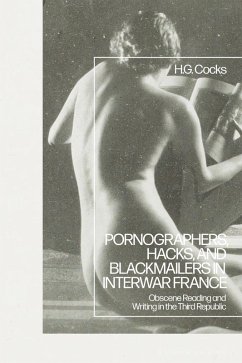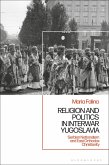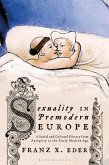After the 1881 declaration of press freedom, France enjoyed a golden age of print, arguably up until the 1950s. This book shines a much-needed light on one of the key elements of France's new literary age: that being the production of 'pornography' of all kinds.
H.G. Cocks reveals how publishers and writers, both mainstream and clandestine, tried to cash in on the vogue for erotic literature which surfaced at the time. Though the vast majority of what was produced was no more than risqué or saucy, Cocks shows that this was seen as far more dangerous than frank sexual imagery, as it was mostly legal and within the range of the ordinary reader.
Pornographers, Hacks, and Blackmailers in Interwar France reflects on how, as a result of this gold rush for what one writer called the 'faux obscene', a great deal of writing, journalism, and quite a few literary and even political careers were supported by the writing of 'pornography'. For some, this new wave of indecent literature seemed to be sapping the morale of the Republic, while for others it was simply part of the creative literary and journalistic ferment of the period. In that sense, Cocks convincingly argues, the pornographic became part of the curious mixture of cultural energy and malaise that enveloped the struggling French democracy.
Hinweis: Dieser Artikel kann nur an eine deutsche Lieferadresse ausgeliefert werden.
H.G. Cocks reveals how publishers and writers, both mainstream and clandestine, tried to cash in on the vogue for erotic literature which surfaced at the time. Though the vast majority of what was produced was no more than risqué or saucy, Cocks shows that this was seen as far more dangerous than frank sexual imagery, as it was mostly legal and within the range of the ordinary reader.
Pornographers, Hacks, and Blackmailers in Interwar France reflects on how, as a result of this gold rush for what one writer called the 'faux obscene', a great deal of writing, journalism, and quite a few literary and even political careers were supported by the writing of 'pornography'. For some, this new wave of indecent literature seemed to be sapping the morale of the Republic, while for others it was simply part of the creative literary and journalistic ferment of the period. In that sense, Cocks convincingly argues, the pornographic became part of the curious mixture of cultural energy and malaise that enveloped the struggling French democracy.
Hinweis: Dieser Artikel kann nur an eine deutsche Lieferadresse ausgeliefert werden.









